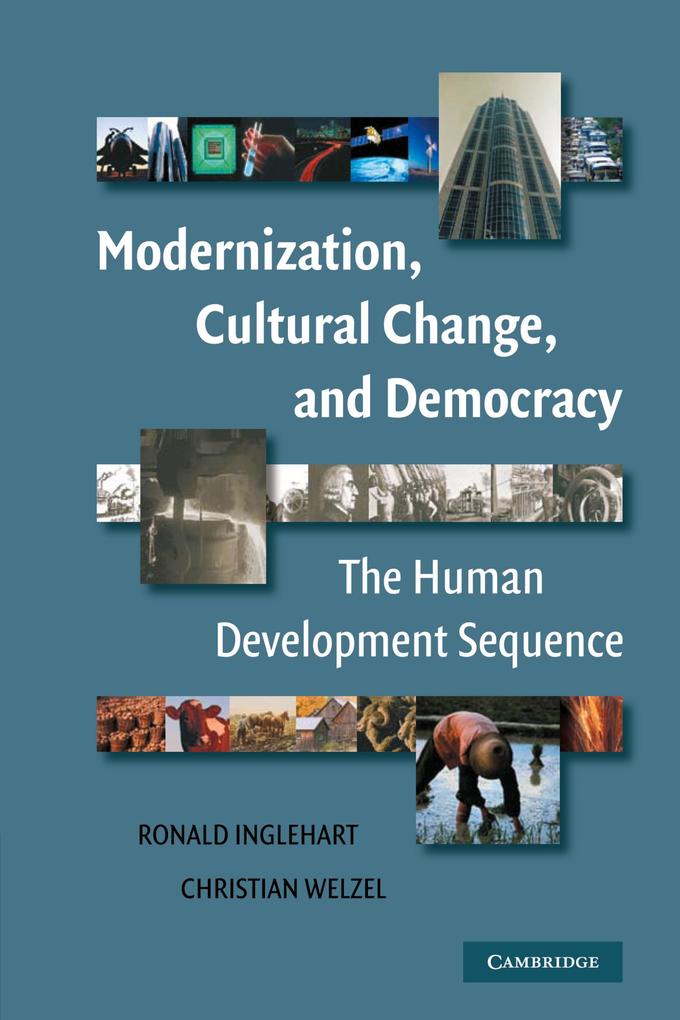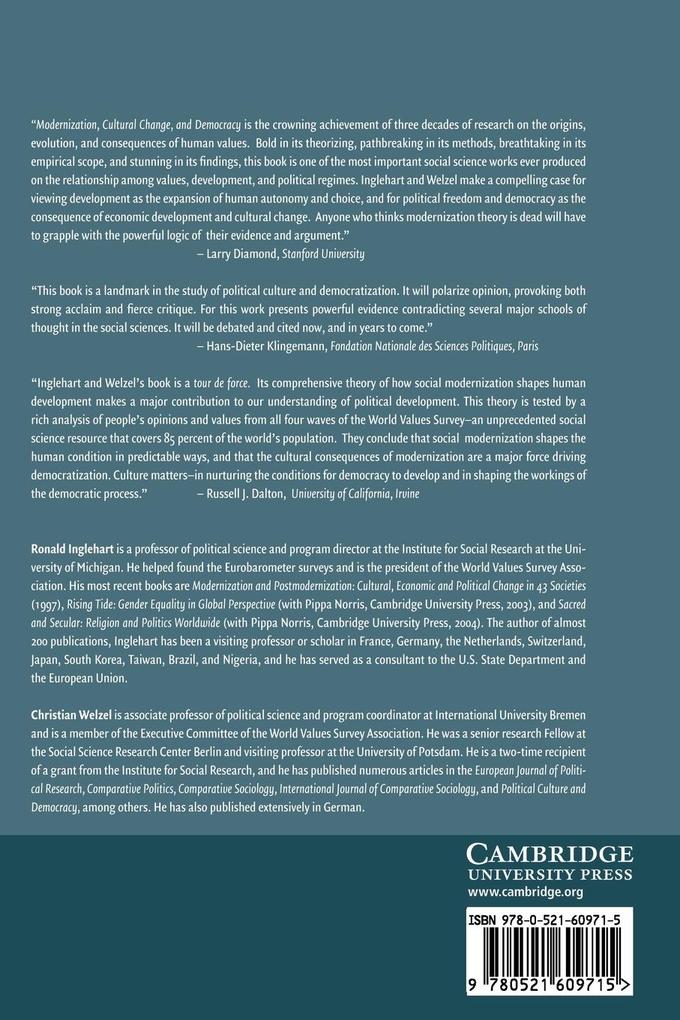
Zustellung: Mi, 02.07. - Sa, 05.07.
Versand in 5 Tagen
VersandkostenfreiThis book presents a revised version of modernisation theory.
This book demonstrates that people's basic values and beliefs are changing, in ways that affect their political, sexual, economic, and religious behavior. These changes are roughly predictable: to a large extent, they can be interpreted on the basis of a revised version of modernization theory presented here. Drawing on a massive body of evidence from societies containing 85 percent of the world's population, the authors demonstrate that modernization is a process of human development, in which economic development gives rise to cultural changes that make individual autonomy, gender equality, and democracy increasingly likely. The authors present a model of social change that predicts how the value systems play a crucial role in the emergence and flourishing of democratic institutions - and that modernization brings coherent cultural changes that are conducive to democratization.
Inhaltsverzeichnis
Part I. The Forces Shaping Value Change: 1. A revised theory of modernization; 2. Value change and the persistence of cultural traditions; 3. Exploring the unknown: predicting mass responses; 4. Intergenerational value change; 5. Value changes over time; 6. Individualism, self-expression, and civic virtues; Part II. Consequences of Value Change: 7. The causal link between democratic values and democratic institutions: theoretical discussion; 8. The causal link between democratic values and democratic institutions: empirical analyses; 9. Social forces, collective action, and international events; 10. Individual level values and system level democracy: the problem of cross-level analysis; 11. Elements of a pro-democratic civic culture; 12. Gender equality, emancipative values, and democracy; 13. The Implications of human development; Conclusion: an emancipative theory of democracy.
Produktdetails
Erscheinungsdatum
20. Oktober 2005
Sprache
englisch
Seitenanzahl
344
Autor/Autorin
Ronald Inglehart, Christian Welzel
Verlag/Hersteller
Produktart
kartoniert
Gewicht
524 g
Größe (L/B/H)
234/156/19 mm
ISBN
9780521609715
Entdecken Sie mehr
Pressestimmen
'Modernization, Cultural Change, and Democracy is the crowning achievement of three decades of research on the origins, evolution, and consequences of human values. Bold in its theorizsng, pathbreaking in its methods, breathtaking in its empirical scope, and stunning in its findings, this book is one of the most important social science works ever produced on the relationship between values, development, and political regimes. Inglehart and Welzel make a compelling case for viewing development as the expansion of human autonomy and choice, and for political freedom and democracy as the consequence of economic development and cultural change. Anyone who thinks modernization theory is dead will have to grapple with the powerful logic of their evidence and argument. ' Larry Diamond, Stanford University
Bewertungen
0 Bewertungen
Es wurden noch keine Bewertungen abgegeben. Schreiben Sie die erste Bewertung zu "Modernization, Cultural Change, and Democracy" und helfen Sie damit anderen bei der Kaufentscheidung.








